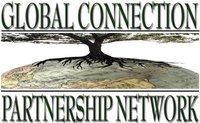GCPN in 2010

Three years have passed since official steps were taken to assemble the bare-bones infrastructure of a church network called GCPN. Our ideals were founded upon Biblical evidence and suggestion regarding how the Church and the churches did, ought and ought not function in carrying out the commission of Christ. Those foundational ideals which shaped our thinking were not simply ideas, but rather were a design rooted in observation of the effective and loose nature of the 1st Century Christian movement. While some structure was emerging, the power of 1st Century movement appears to be the Spirit of God moving in the loose and fluid nature of authentic faith which intersected real life in real relationships. While the early church had a strong appreciation for the foundational truths that preceded the re-birth of God's people, loyalty to Old Covenant institutions or practices did not define their future. It seemed more common that the Sprit of God was leading the Church just a little ahead of its most orthodox representative body - the Jerusalem church. As Greeks were being transformed and exercising the gifting of the Spirit of God, the Jerusalem church was constantly challenged to embrace the new realities of the new covenant.
And the followers of Christ pressed on. By means of commerce, family, friend, persecution and connection the Gospel penetrated Europe and north and east Africa. The Good News infiltrated kings' palaces, philosophical forums, academic institutions, prisons, families, businesses, communities, the hearts of prostitutes and centurions and others. It's really an amazing story. In fact it is so amazing that even today, the speed of the Christian movement is analyzed and pondered. In a November 20, 2010 article in USA Today, Dan Vergano approaches this amazing phenomenon. He quotes Adam Schor of Long Island University, in Brookville, N.Y., in the current Journal of Religious History who analyzes the exponential growth of the Christian movement in the early centuries from three perspectives - the missions model, the values model and the social model. Yet Schor states that none of them adequately describes the nature of the movement. Schor then proposes a new model to explain the phenomenon -
A new approach, he [Schor] suggests, might borrow a kind
Introduced into networks, the authentic gospel should be uncontrollably infectious. It is passed through relationship, through sharing and handling, through touch, communication and through the powerful silence of heartfelt prayer. It permeates societies like...you know...like yeast in bread - rising in a transformational force that alters the state of the whole of society by infecting individual lives.
GCPN's focus in 2010 will be a continued commitment to the core values that have defined us to this point. We will continue to emphasize:
- Spiritual and missional formation in the community context of the local church
- Collaboration
- The development of strategic networks
Spiritual and Missional Formation
We believe the church is the base for mission. In the context and community of the local church, Christ has equipped us with everything we need to be prepared to take the gospel to a lost world. When the responsibility for mission sending is extracted from the local body, there is an immediate sigh of relief. Sending is a messy and challenging business. However, this extraction of the church's responsibility is to the long-term detriment of the church and to those who are sent by the church. When relieved of the responsibility of sending, the church becomes crippled, the missionary becomes a professional employee and the lost world remains for the most part untouched. GCPN will continue to develop formational equipping experiences for local churches which will be web-based, community-oriented and network-accessible.
Collaboration
In the parable of the talents, Christ clearly states his mind on the issue of responsible handling of resources. It appears that even those who have little resource are expected to invest in such a way that results in productive and reproducible growth. Hoarding and kingdom competitiveness is not an option. Intentional planting and investing is essential for productive harvest. To see beyond one's self and beyond one's church is the challenge in Kingdom thinking. While it may take time for you to invest in the development of another minister, leader or church - the long term result is markedly more productive. GCPN will continue to promote collaboration of resources - knowledge, people, possession, time, and money. We are churches partnering with churches to reach the world for Christ.
Strategic Networks
While this is the most challenging and least defined aspect of our vision, we are committed to fueling and developing global networks. This vision has multiple layers - emerging from geographic region, extending to affinities and merging across lines to form kingdom networks that will strengthen the vision and development of kingdom efforts. GCPN will continue to support the people who are thinking and living their lives with this vision.
We are grateful for you and your church's presence in this network. There is much work to be done together. I pray that you will be both a recipient and a contributor to the efforts in 2010. May God be glorified as we live out this calling to preach the gospel to all nations. May your year be marked by Kingdom success.
Shalom.
Cindy

